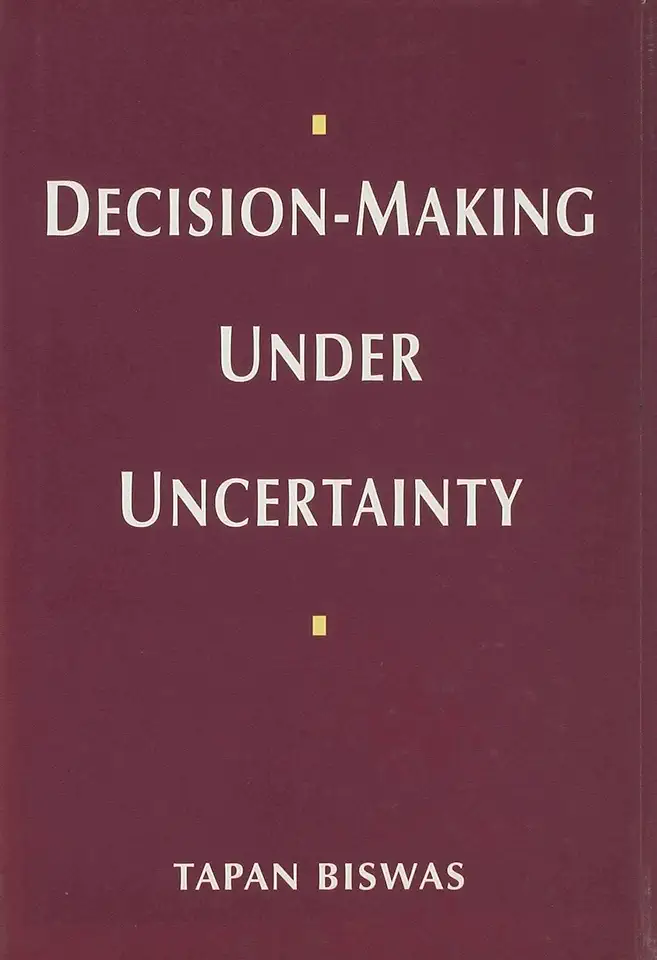
Decision-Making Under Uncertainty - Tapan Biswas
Decision-Making Under Uncertainty: A Comprehensive Guide to Navigating the Unknown
In today's rapidly changing and unpredictable world, the ability to make informed decisions under uncertain conditions is a critical skill for individuals and organizations alike. "Decision-Making Under Uncertainty" by Tapan Biswas offers a comprehensive and practical guide to mastering this essential skill.
Understanding Uncertainty:
Uncertainty is an inherent part of life and decision-making. It arises from various sources, such as incomplete information, unpredictable events, and complex systems. Biswas begins by exploring the nature of uncertainty and its impact on decision-making processes. He emphasizes the importance of recognizing and acknowledging uncertainty rather than ignoring or avoiding it.
Frameworks for Decision-Making:
The book presents a range of frameworks and tools to help readers approach decision-making under uncertainty systematically and effectively. These frameworks include:
Expected Utility Theory: This classical approach considers the probability of different outcomes and their associated values to determine the optimal decision.
Regret Theory: This theory focuses on minimizing potential regrets by considering the consequences of choosing one option over others.
Prospect Theory: This behavioral economics theory takes into account psychological factors, such as loss aversion and reference points, that influence decision-making.
Robust Decision-Making: This approach aims to identify and implement decisions that are resilient to a wide range of possible outcomes.
Dealing with Complexity:
Biswas addresses the challenge of making decisions in complex systems, where numerous factors interact in intricate ways. He introduces concepts such as systems thinking, sensitivity analysis, and scenario planning to help readers navigate these complexities.
Case Studies and Real-World Applications:
The book is enriched with real-world case studies from various fields, including business, finance, healthcare, and public policy. These case studies illustrate how the frameworks and tools discussed in the book can be applied in practice to make better decisions under uncertainty.
Overcoming Cognitive Biases:
Biswas highlights the role of cognitive biases in decision-making and provides strategies to overcome these biases. He emphasizes the importance of self-awareness, critical thinking, and seeking diverse perspectives to make more objective and informed decisions.
Ethical Considerations:
The book also explores the ethical dimensions of decision-making under uncertainty. Biswas discusses the importance of considering the potential consequences of decisions on stakeholders, society, and the environment.
Conclusion:
"Decision-Making Under Uncertainty" by Tapan Biswas is a comprehensive and thought-provoking guide that equips readers with the knowledge and tools to make better decisions in the face of uncertainty. By mastering the principles and techniques presented in this book, individuals and organizations can navigate the complexities of the modern world with greater confidence and effectiveness.
Enjoyed the summary? Discover all the details and take your reading to the next level — [click here to view the book on Amazon!]